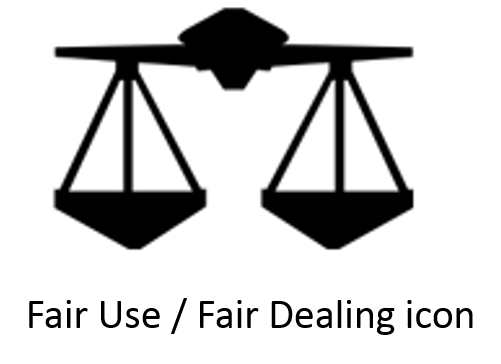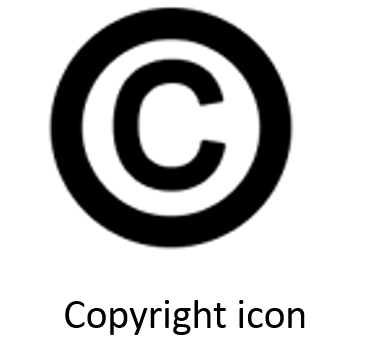Fair Dealing & Copyright
The Basics
Fair Dealing
Fair dealing is a user’s right in copyright law permitting use of, or “dealing” with, a copyright protected work without permission or payment of copyright royalties. The fair dealing exception in the Copyright Act allows you to use other people’s copyright protected material for the purpose of research, private study, education, satire, parody, criticism, review or news reporting, provided that what you do with the work is ‘fair’.
Algoma University has a Fair Dealing Policy which lays out how much you can copy for purposes of education, research and private study.
Whether something is ‘fair’ will depend on the circumstances. Courts will normally consider factors such as:
- The purpose of the dealing (Is it commercial or research / educational?)
- The character of the dealing (What was done with the work? Was it an isolated use or an ongoing, repetitive use? How widely was it distributed?)
- The amount of the dealing (How much was copied?)
- Alternatives to the dealing (Was the work necessary for the end result? Could a different work have been used instead?)
- The nature of the work (Is there a public interest in its dissemination? Was it previously unpublished?)
- The effect of the dealing on the original work (Does the use compete with the market of the original work?)
It is not necessary that your use satisfy every one of these factors in order to be fair, and no one factor is determinative by itself. In assessing whether your use is fair, a court would look at the factors as a whole to determine if, on balance, your use is fair.
If, having taken into account these considerations, the use can be characterized as ‘fair’ and it was for the purpose of research, private study, education, satire, parody, criticism, review or news reporting, then it will fall within the fair dealing exception and will not require permission from the copyright owner. In addition, if your purpose is criticism, review or news reporting you must also mention the source and author of the work for it to be fair dealing.
Please note as well; it is important to distinguish ‘fair dealing’ from ‘fair use’. The fair use exception in U.S. copyright law is NOT the equivalent of fair dealing in Canadian law. The wording of the two exceptions is different. It is important to make sure that you consider the Canadian law and are not relying on U.S. information, which has no jurisdiction in Canada.
Adapted from Simon Fraser University under (CC BY-NC 4.0).
Access Copyright
Access Copyright (AC) is an organization that represents creators and publishers in Canada and licenses the copying of works to institutions. Algoma University currently has an Access Copyright License, meaning individuals from our institution are able to access items in the Access Copyright Repertoire with more rights than what is allowed under Fair Dealing. The main purpose of this license is to cover the reproduction and use of print materials included within the AC Repertoire.
Unfortunately, this license does not cover every item or book. Therefore, it is good practice, before using an item, to search for it in the Repertoire to see if it is eligible under the Access Copyright License and to learn its permitted uses.
The basic rights under the Access Copyright License are:
- You can make copies of up to 20% of a work (e.g. a book)
Or - Provided that it is no more than 25% of the work in which it is found, you can make copies of:
- An entire page or article from a magazine, journal, or newspaper
- An entire short story, play, poem, essay, or article from a work that contains other published works
- An entire entry or article from a reference work
- An entire reproduction of an artistic work (including any drawing, painting, print, photograph, or other reproduction of a work of sculpture, architectural work, or work of artistic craftsmanship) from a work that contains other published works
- An entire chapter from a book
Copyright
Copyright laws protect the creators of original works by granting them exclusive rights to copy, share, or license their material. Both national and international laws protect the commercial interests of copyright owners. Photographs, books, articles, songs, web page content, computer programs, videos, or even a sketch on a napkin are subject to copyright.
Interestingly, it is not required that a work be registered in order to be copyrighted. However, copyright holders who register their work with an official copyright office will have the strongest legal protections. It is safest to assume that most content you come across is copyrighted.
Adapted from Brock University


More Information
For more information on Fair Dealing & Copyright check out the links below:
- Algoma University’s Fair Dealing Policy
- Fair Dealing Guidelines Poster (Council of Ministers of Education Canada)
- A Guide to Copyright (Government of Canada)